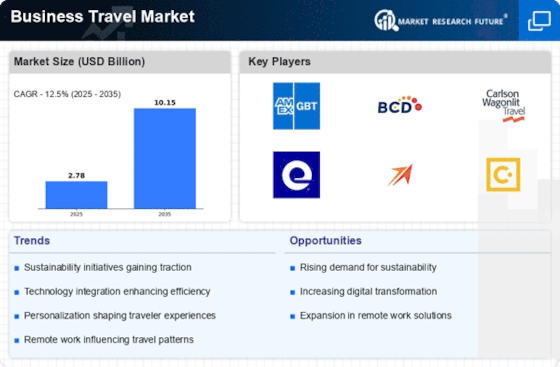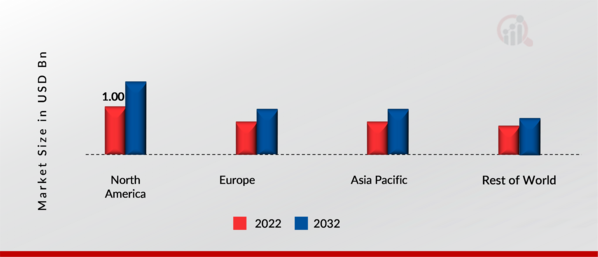-
BUSINESS TRAVEL MARKET, By Type\r\n\r\nOverview\r\nManaged Business
-
Travel\r\nUnmanaged Business Travel\r\n\r\n\r\nGLOBAL
-
BUSINESS TRAVEL MARKET, By Purpose\r\n\r\nOverview\r\nMarketing\r\nInternal
-
Meetings\r\nTrade Shows\r\nProduct Launch\r\nOthers\r\n\r\n\r\nGLOBAL
-
BUSINESS TRAVEL MARKET, By Expenditure\r\n\r\nOverview\r\nMarketing
-
Travel Fare\r\nLodging\r\nDining\r\nOthers\r\n\r\n\r\nGLOBAL
-
BUSINESS TRAVEL MARKET, by Age Group\r\n\r\nOverview\r\nTravelers
-
Below 40 Years\r\nTravelers Above 40 Years\r\n\r\n\r\n\r\n
-
\r\n\r\nGLOBAL BUSINESS
-
TRAVEL MARKET, By Traveler\r\n\r\nOverview\r\nGroup Travel\r\nSolo
-
Travel\r\nService\r\n\r\n\r\nGLOBAL BUSINESS TRAVEL
-
MARKET, By Service\r\n\r\nOverview\r\nFood and Lodging\r\nRecreation
-
Activity\r\n\r\n\r\nGLOBAL BUSINESS TRAVEL MARKET, by Industry\r\n\r\nOverview\r\nGovernment\r\nCorporate\r\n\r\n\r\nGLOBAL
-
BUSINESS TRAVEL MARKET, by Region\r\n\r\nOverview\r\nNorth America\r\n\r\nUS\r\nCanada\r\n\r\n\r\nEurope\r\n\r\nGermany\r\nFrance\r\nUK\r\nItaly\r\nSpain\r\nRest
-
of Europe\r\n\r\n\r\nAsia-Pacific\r\n\r\nChina\r\nIndia\r\nJapan\r\nSouth
-
Korea\r\nAustralia\r\nRest of Asia-Pacific\r\n\r\n\r\nRest
-
of the World\r\n\r\nMiddle East\r\nAfrica\r\nLatin America\r\n\r\n\r\n\r\n\r\n\r\n\r\nCompetitive Landscape\r\n\r\nOverview\r\nCompetitive
-
Analysis\r\nMarket Share Analysis\r\nMajor Growth Strategy in
-
the Global Business Travel Market,\r\nCompetitive Benchmarking\r\nLeading
-
Players in Terms of Number of Developments in the Global Business Travel Market,\r\nKey
-
developments and Growth Strategies\r\n\r\nNew
-
Product Launch/Service Deployment\r\nMerger
-
& Acquisitions\r\nJoint Ventures\r\n\r\n\r\nMajor
-
Players Financial Matrix\r\n\r\nSales &
-
Operating Income, 2022\r\nMajor Players
-
R&D Expenditure. 2022\r\n\r\n\r\n\r\n\r\n\r\n\r\nCompany ProfileS\r\n\r\nADEKA CORPORATION Airbnb, Inc.\r\n\r\nCompany Overview\r\nFinancial Overview\r\nProducts
-
Offered\r\nKey Developments\r\nSWOT Analysis\r\nKey
-
Strategies\r\n\r\n\r\nAmerican Express Company\r\n\r\nCompany Overview\r\nFinancial Overview\r\nProducts
-
Offered\r\nKey Developments\r\nSWOT Analysis\r\nKey
-
Strategies\r\n\r\n\r\nBCD Group\r\n\r\nCompany Overview\r\nFinancial
-
Overview\r\nProducts Offered\r\nKey Developments\r\nSWOT Analysis\r\nKey Strategies\r\n\r\n\r\nBooking
-
Holdings\r\n\r\nCompany Overview\r\nFinancial Overview\r\nProducts Offered\r\nKey Developments\r\nSWOT Analysis\r\nKey
-
Strategies\r\n\r\n\r\nCWT Solutions\r\n\r\nCompany Overview\r\nFinancial
-
Overview\r\nProducts Offered\r\nKey Developments\r\nSWOT Analysis\r\nKey Strategies\r\n\r\n\r\nCorporate
-
Travel Management\r\n\r\nCompany Overview\r\nFinancial Overview\r\nProducts Offered\r\nKey Developments\r\nSWOT Analysis\r\nKey
-
Strategies\r\n\r\n\r\nExpedia, Inc.\r\n\r\nCompany Overview\r\nFinancial
-
Overview\r\nProducts Offered\r\nKey Developments\r\nSWOT Analysis\r\nKey Strategies\r\n\r\n\r\nFareportal\r\n\r\nCompany Overview\r\nFinancial Overview\r\nProducts
-
Offered\r\nKey Developments\r\nSWOT Analysis\r\nKey
-
Strategies\r\n\r\n\r\nFlight Centre Travel Group Limited\r\n\r\nCompany Overview\r\nFinancial Overview\r\nProducts
-
Offered\r\nKey Developments\r\nSWOT Analysis\r\nKey
-
Strategies\r\n\r\n\r\nWexas Travel\r\n\r\nCompany Overview\r\nFinancial
-
Overview\r\nProducts Offered\r\nKey Developments\r\nSWOT Analysis\r\nKey Strategies\r\n\r\n\r\nHogg
-
Robinson Ltd\r\n\r\nCompany Overview\r\nFinancial Overview\r\nProducts Offered\r\nKey Developments\r\nSWOT Analysis\r\nKey
-
Strategies\r\n\r\n\r\nPriceline\r\n\r\nCompany Overview\r\nFinancial
-
Overview\r\nProducts Offered\r\nKey Developments\r\nSWOT Analysis\r\nKey Strategies\r\n\r\n\r\nEgencia
-
LLC\r\n\r\nCompany Overview\r\nFinancial Overview\r\nProducts
-
Offered\r\nKey Developments\r\nSWOT Analysis\r\nKey
-
Strategies\r\n\r\n\r\nFrosch International Travel\r\n\r\nCompany Overview\r\nFinancial Overview\r\nProducts
-
Offered\r\nKey Developments\r\nSWOT Analysis\r\nKey
-
Strategies\r\n\r\n\r\nOvation Travel Group\r\n\r\nCompany Overview\r\nFinancial
-
Overview\r\nProducts Offered\r\nKey Developments\r\nSWOT Analysis\r\nKey Strategies\r\n\r\n\r\nTravel
-
Leaders Group\r\n\r\nCompany Overview\r\nFinancial Overview\r\nProducts Offered\r\nKey Developments\r\nSWOT Analysis\r\nKey
-
Strategies\r\n\r\n\r\n\r\n\r\n\r\n
-
\r\n\r\nAppendix\r\n\r\nReferences\r\nRelated Reports\r\n\r\n\r\n\r\n
-
\r\n
-
\r\nLIST
-
OF TABLES
-
\r\n\r\nGlobal Business Travel Market, Synopsis, 2018-2032\r\nGlobal
-
Business Travel Market, Estimates & Forecast, 2018-2032 (USD BILLION)\r\nGLOBAL
-
BUSINESS TRAVEL MARKET, By Type, 2018-2032 (USD BILLION)\r\nGLOBAL BUSINESS
-
TRAVEL MARKET, By Purpose, 2018-2032 (USD BILLION)\r\nGLOBAL BUSINESS TRAVEL
-
MARKET, By Expenditure, 2018-2032 (USD BILLION)\r\nGLOBAL BUSINESS TRAVEL
-
MARKET, by Age Group, 2018-2032 (USD BILLION)\r\nGLOBAL BUSINESS TRAVEL
-
MARKET, By Traveler, 2018-2032 (USD BILLION)\r\nGLOBAL BUSINESS TRAVEL
-
MARKET, By Service, 2018-2032 (USD BILLION)\r\nGLOBAL BUSINESS TRAVEL MARKET,
-
by Industry, 2018-2032 (USD BILLION)\r\nNorth America: BUSINESS TRAVEL
-
MARKET, By Type, 2018-2032 (USD BILLION)\r\nNorth America: BUSINESS TRAVEL
-
MARKET, By Purpose, 2018-2032 (USD BILLION)\r\nNorth America: BUSINESS
-
TRAVEL MARKET, By Expenditure, 2018-2032 (USD BILLION)\r\nNorth america:
-
BUSINESS TRAVEL MARKET, BY Age Group, 2018-2032 (USD BILLION)\r\nNorth
-
America: BUSINESS TRAVEL MARKET, By Traveler, 2018-2032 (USD BILLION)\r\nNorth
-
America: BUSINESS TRAVEL MARKET, By Service, 2018-2032 (USD BILLION)\r\nNorth
-
america: BUSINESS TRAVEL MARKET, BY Industry, 2018-2032 (USD BILLION)\r\nUS:
-
BUSINESS TRAVEL MARKET, By Type, 2018-2032 (USD BILLION)\r\nUS: BUSINESS
-
TRAVEL MARKET, By Purpose, 2018-2032 (USD BILLION)\r\nUS: BUSINESS TRAVEL
-
MARKET, By Expenditure, 2018-2032 (USD BILLION)\r\nUS: BUSINESS TRAVEL
-
MARKET, BY Age Group, 2018-2032 (USD BILLION)\r\nUS: BUSINESS TRAVEL MARKET,
-
By Traveler, 2018-2032 (USD BILLION)\r\nUS: BUSINESS TRAVEL MARKET, By
-
Service, 2018-2032 (USD BILLION)\r\nUS: BUSINESS TRAVEL MARKET, BY Industry,
-
(USD BILLION)\r\nCanada: BUSINESS TRAVEL MARKET, By Purpose, 2018-2032
-
(USD BILLION)\r\nCanada: BUSINESS TRAVEL MARKET, By Expenditure, 2018-2032
-
(USD BILLION)\r\nCanada: BUSINESS TRAVEL MARKET, BY Age Group, 2018-2032
-
(USD BILLION)\r\nCanada: BUSINESS TRAVEL MARKET, By Traveler, 2018-2032
-
(USD BILLION)\r\nCanada: BUSINESS TRAVEL MARKET, By Service, 2018-2032
-
(USD BILLION)\r\nCanada: BUSINESS TRAVEL MARKET, BY Industry, 2018-2032
-
(USD BILLION)\r\nEurope: BUSINESS TRAVEL MARKET, By Type, 2018-2032 (USD
-
BILLION)\r\nEurope: BUSINESS TRAVEL MARKET, By Purpose, 2018-2032 (USD
-
BILLION)\r\nEurope: BUSINESS TRAVEL MARKET, By Expenditure, 2018-2032 (USD
-
BILLION)\r\nEurope: BUSINESS TRAVEL MARKET,
-
BY Age Group, 2018-2032 (USD BILLION)\r\nEurope: BUSINESS TRAVEL MARKET,
-
By Traveler, 2018-2032 (USD BILLION)\r\nEurope: BUSINESS TRAVEL MARKET,
-
By Service, 2018-2032 (USD BILLION)\r\nEurope:
-
BUSINESS TRAVEL MARKET, BY Industry, 2018-2032 (USD BILLION)\r\ngermany:
-
BUSINESS TRAVEL MARKET, By Type, 2018-2032 (USD BILLION)\r\ngermany: BUSINESS
-
TRAVEL MARKET, By Purpose, 2018-2032 (USD BILLION)\r\ngermany: BUSINESS
-
TRAVEL MARKET, By Expenditure, 2018-2032 (USD BILLION)\r\ngermany: BUSINESS TRAVEL MARKET, BY Age Group, 2018-2032 (USD BILLION)\r\ngermany:
-
BUSINESS TRAVEL MARKET, By Traveler, 2018-2032 (USD BILLION)\r\ngermany:
-
BUSINESS TRAVEL MARKET, By Service, 2018-2032 (USD BILLION)\r\ngermany: BUSINESS TRAVEL MARKET, BY Industry, 2018-2032 (USD BILLION)\r\nFRANCE:
-
BUSINESS TRAVEL MARKET, By Type, 2018-2032 (USD BILLION)\r\nFRANCE: BUSINESS
-
TRAVEL MARKET, By Purpose, 2018-2032 (USD BILLION)\r\nFRANCE: BUSINESS
-
TRAVEL MARKET, By Expenditure, 2018-2032 (USD BILLION)\r\nFrance: BUSINESS TRAVEL MARKET, BY Age Group, 2018-2032 (USD BILLION)\r\nFRANCE:
-
BUSINESS TRAVEL MARKET, By Traveler, 2018-2032 (USD BILLION)\r\nFRANCE:
-
BUSINESS TRAVEL MARKET, By Service, 2018-2032 (USD BILLION)\r\nFrance: BUSINESS TRAVEL MARKET, BY Industry, 2018-2032 (USD BILLION)\r\nitaly:
-
BUSINESS TRAVEL MARKET, By Type, 2018-2032 (USD BILLION)\r\nitaly: BUSINESS
-
TRAVEL MARKET, By Purpose, 2018-2032 (USD BILLION)\r\nitaly: BUSINESS TRAVEL
-
MARKET, By Expenditure, 2018-2032 (USD BILLION)\r\nitaly: BUSINESS TRAVEL MARKET, BY Age Group, 2018-2032 (USD BILLION)\r\nitaly:
-
BUSINESS TRAVEL MARKET, By Traveler, 2018-2032 (USD BILLION)\r\nitaly:
-
BUSINESS TRAVEL MARKET, By Service, 2018-2032 (USD BILLION)\r\nitaly: BUSINESS TRAVEL MARKET, BY Industry, 2018-2032 (USD BILLION)\r\nspain:
-
BUSINESS TRAVEL MARKET, By Type, 2018-2032 (USD BILLION)\r\nspain: BUSINESS
-
TRAVEL MARKET, By Purpose, 2018-2032 (USD BILLION)\r\nspain: BUSINESS TRAVEL
-
MARKET, By Expenditure, 2018-2032 (USD BILLION)\r\nspain: BUSINESS TRAVEL MARKET, BY Age Group, 2018-2032 (USD BILLION)\r\nspain:
-
BUSINESS TRAVEL MARKET, By Traveler, 2018-2032 (USD BILLION)\r\nspain:
-
BUSINESS TRAVEL MARKET, By Service, 2018-2032 (USD BILLION)\r\nspain: BUSINESS TRAVEL MARKET, BY Industry, 2018-2032 (USD BILLION)\r\nUK:
-
BUSINESS TRAVEL MARKET, By Type, 2018-2032 (USD BILLION)\r\nUK: BUSINESS
-
TRAVEL MARKET, By Purpose, 2018-2032 (USD BILLION)\r\nUK: BUSINESS TRAVEL
-
MARKET, By Expenditure, 2018-2032 (USD BILLION)\r\nuk: BUSINESS TRAVEL MARKET, BY Age Group, 2018-2032 (USD BILLION)\r\nUK:
-
BUSINESS TRAVEL MARKET, By Traveler, 2018-2032 (USD BILLION)\r\nUK: BUSINESS
-
TRAVEL MARKET, By Service, 2018-2032 (USD BILLION)\r\nuk: BUSINESS TRAVEL MARKET, BY Industry, 2018-2032 (USD BILLION)\r\nrest
-
of europe: BUSINESS TRAVEL MARKET, By Type, 2018-2032 (USD BILLION)\r\nrest
-
of europe: BUSINESS TRAVEL MARKET, By Purpose, 2018-2032 (USD BILLION)\r\nrest
-
of europe: BUSINESS TRAVEL MARKET, By Expenditure, 2018-2032 (USD BILLION)\r\nREST OF EUROPE: BUSINESS TRAVEL MARKET, BY Age Group,
-
BUSINESS TRAVEL MARKET, BY Industry, 2018-2032 (USD BILLION)\r\nAsia-Pacific:
-
BUSINESS TRAVEL MARKET, By Type, 2018-2032 (USD BILLION)\r\nAsia-Pacific:
-
BUSINESS TRAVEL MARKET, By Purpose, 2018-2032 (USD BILLION)\r\nAsia-Pacific:
-
BUSINESS TRAVEL MARKET, By Expenditure, 2018-2032 (USD BILLION)\r\nASIA-PACIFIC: BUSINESS TRAVEL MARKET, BY Age Group, 2018-2032 (USD BILLION)\r\nAsia-Pacific:
-
BUSINESS TRAVEL MARKET, By Traveler, 2018-2032 (USD BILLION)\r\nAsia-Pacific:
-
BUSINESS TRAVEL MARKET, By Service, 2018-2032 (USD BILLION)\r\nASIA-PACIFIC: BUSINESS TRAVEL MARKET, BY Industry, 2018-2032 (USD BILLION)\r\njapan:
-
BUSINESS TRAVEL MARKET, By Type, 2018-2032 (USD BILLION)\r\njapan: BUSINESS
-
TRAVEL MARKET, By Purpose, 2018-2032 (USD BILLION)\r\njapan: BUSINESS TRAVEL
-
MARKET, By Expenditure, 2018-2032 (USD BILLION)\r\njapan: BUSINESS TRAVEL MARKET, BY Age Group, 2018-2032 (USD BILLION)\r\njapan:
-
BUSINESS TRAVEL MARKET, By Traveler, 2018-2032 (USD BILLION)\r\njapan:
-
BUSINESS TRAVEL MARKET, By Service, 2018-2032 (USD BILLION)\r\njapan: BUSINESS TRAVEL MARKET, BY Industry, 2018-2032 (USD BILLION)\r\nchina:
-
BUSINESS TRAVEL MARKET, By Type, 2018-2032 (USD BILLION)\r\nchina: BUSINESS
-
TRAVEL MARKET, By Purpose, 2018-2032 (USD BILLION)\r\nchina: BUSINESS TRAVEL
-
MARKET, By Expenditure, 2018-2032 (USD BILLION)\r\nchina: BUSINESS TRAVEL MARKET, BY Age Group, 2018-2032 (USD BILLION)\r\nchina:
-
BUSINESS TRAVEL MARKET, By Traveler, 2018-2032 (USD BILLION)\r\nchina:
-
BUSINESS TRAVEL MARKET, By Service, 2018-2032 (USD BILLION)\r\nchina: BUSINESS TRAVEL MARKET, BY Industry, 2018-2032 (USD BILLION)\r\nindia:
-
BUSINESS TRAVEL MARKET, By Type, 2018-2032 (USD BILLION)\r\nindia: BUSINESS
-
TRAVEL MARKET, By Purpose, 2018-2032 (USD BILLION)\r\nindia: BUSINESS TRAVEL
-
MARKET, By Expenditure, 2018-2032 (USD BILLION)\r\nindia: BUSINESS TRAVEL MARKET, BY Age Group, 2018-2032 (USD BILLION)\r\nindia:
-
BUSINESS TRAVEL MARKET, By Traveler, 2018-2032 (USD BILLION)\r\nindia:
-
BUSINESS TRAVEL MARKET, By Service, 2018-2032 (USD BILLION)\r\nindia: BUSINESS TRAVEL MARKET, BY Industry, 2018-2032 (USD BILLION)\r\naustralia:
-
BUSINESS TRAVEL MARKET, By Type, 2018-2032 (USD BILLION)\r\naustralia:
-
BUSINESS TRAVEL MARKET, By Purpose, 2018-2032 (USD BILLION)\r\naustralia:
-
BUSINESS TRAVEL MARKET, By Expenditure, 2018-2032 (USD BILLION)\r\naustralia: BUSINESS TRAVEL MARKET, BY Age Group, 2018-2032 (USD BILLION)\r\naustralia:
-
BUSINESS TRAVEL MARKET, By Traveler, 2018-2032 (USD BILLION)\r\naustralia:
-
BUSINESS TRAVEL MARKET, By Service, 2018-2032 (USD BILLION)\r\naustralia: BUSINESS TRAVEL MARKET, BY Industry, 2018-2032 (USD BILLION)\r\nsouth
-
korea: BUSINESS TRAVEL MARKET, By Type, 2018-2032 (USD BILLION)\r\nsouth
-
korea: BUSINESS TRAVEL MARKET, By Purpose, 2018-2032 (USD BILLION)\r\nsouth
-
korea: BUSINESS TRAVEL MARKET, By Expenditure, 2018-2032 (USD BILLION)\r\nsouth korea: BUSINESS TRAVEL MARKET, BY Age Group,
-
BUSINESS TRAVEL MARKET, BY Industry, 2018-2032 (USD BILLION)\r\nrest of
-
asia-pacific: BUSINESS TRAVEL MARKET, By Type, 2018-2032 (USD BILLION)\r\nrest
-
of asia-pacific: BUSINESS TRAVEL MARKET, By Purpose, 2018-2032 (USD BILLION)\r\nrest
-
of asia-pacific: BUSINESS TRAVEL MARKET, By Expenditure, 2018-2032 (USD BILLION)\r\nREST OF ASIA-PACIFIC: BUSINESS TRAVEL MARKET, BY
-
Age Group, 2018-2032 (USD BILLION)\r\nrest of asia-pacific: BUSINESS TRAVEL
-
MARKET, By Traveler, 2018-2032 (USD BILLION)\r\nrest of asia-pacific: BUSINESS
-
TRAVEL MARKET, By Service, 2018-2032 (USD BILLION)\r\nREST OF ASIA-PACIFIC: BUSINESS TRAVEL MARKET, BY Industry, 2018-2032 (USD
-
BILLION)\r\nrest of the world: BUSINESS TRAVEL MARKET, By Type, 2018-2032
-
(USD BILLION)\r\nrest of the world: BUSINESS TRAVEL MARKET, By Purpose,
-
Expenditure, 2018-2032 (USD BILLION)\r\nREST
-
OF THE WORLD: BUSINESS TRAVEL MARKET, BY Age Group, 2018-2032 (USD BILLION)\r\nrest
-
of the world: BUSINESS TRAVEL MARKET, By Traveler, 2018-2032 (USD BILLION)\r\nrest
-
of the world: BUSINESS TRAVEL MARKET, By Service, 2018-2032 (USD BILLION)\r\nREST OF THE WORLD: BUSINESS TRAVEL MARKET, BY Industry,
-
BUSINESS TRAVEL MARKET, BY Age Group, 2018-2032 (USD BILLION)\r\nMiddle
-
east: BUSINESS TRAVEL MARKET, By Traveler, 2018-2032 (USD BILLION)\r\nMiddle
-
east: BUSINESS TRAVEL MARKET, By Service, 2018-2032 (USD BILLION)\r\nMIDDLE EAST: BUSINESS TRAVEL MARKET, BY Industry, 2018-2032 (USD BILLION)\r\nAfrica:
-
BUSINESS TRAVEL MARKET, By Type, 2018-2032 (USD BILLION)\r\nAfrica: BUSINESS
-
TRAVEL MARKET, By Purpose, 2018-2032 (USD BILLION)\r\nAfrica: BUSINESS
-
TRAVEL MARKET, By Expenditure, 2018-2032 (USD BILLION)\r\nAfrica: BUSINESS TRAVEL MARKET, BY AGE GROUP, 2018-2032 (USD BILLION)\r\nAfrica:
-
BUSINESS TRAVEL MARKET, By Traveler, 2018-2032 (USD BILLION)\r\nAfrica:
-
BUSINESS TRAVEL MARKET, By Service, 2018-2032 (USD BILLION)\r\nAfrica: BUSINESS TRAVEL MARKET, BY INDUSTRY, 2018-2032 (USD BILLION)\r\nLatin
-
america: BUSINESS TRAVEL MARKET, By Type, 2018-2032 (USD BILLION)\r\nLatin
-
america: BUSINESS TRAVEL MARKET, By Purpose, 2018-2032 (USD BILLION)\r\nLatin
-
america: BUSINESS TRAVEL MARKET, By Expenditure, 2018-2032 (USD BILLION)\r\nLATIN AMERICA: BUSINESS TRAVEL MARKET, BY AGE GROUP,
-
BUSINESS TRAVEL MARKET, BY INDUSTRY, 2018-2032 (USD BILLION)\r\n\r\nLIST
-
OF FIGURES
-
\r\n\r\nResearch Process\r\nMarket Structure
-
for the Global Business Travel Market\r\nMarket Dynamics for the Global
-
Business Travel Market\r\nGlobal Business Travel Market, Share (%), By
-
Type, 2022\r\nGlobal Business Travel Market, Share (%), By Purpose, 2022\r\nGlobal
-
Business Travel Market, Share (%), By Expenditure, 2022\r\nGlobal Business
-
Travel Market, Share (%), BY Age Group, 2022\r\nGlobal Business Travel
-
Market, Share (%), By Traveler, 2022\r\nGlobal Business Travel Market,
-
Share (%), By Service, 2022\r\nGlobal Business Travel Market, Share (%),
-
BY Industry, 2022\r\nGlobal Business Travel Market, Share (%), by Region,
-
BUSINESS TRAVEL MARKET, SHARE (%), BY REGION, 2022\r\nAsia-Pacific: BUSINESS
-
TRAVEL MARKET, SHARE (%), BY REGION, 2022\r\nRest of the world: BUSINESS
-
TRAVEL MARKET, SHARE (%), BY REGION, 2022\r\nGlobal Business Travel Market:
-
Company Share Analysis, 2022 (%)\r\nADEKA CORPORATION Airbnb, Inc.: FINANCIAL
-
OVERVIEW SNAPSHOT\r\nADEKA CORPORATION Airbnb, Inc.: SWOT ANALYSIS\r\nAmerican
-
Express Company: FINANCIAL OVERVIEW SNAPSHOT\r\nAmerican Express Company:
-
SWOT ANALYSIS\r\nBCD Group: FINANCIAL OVERVIEW SNAPSHOT\r\nBCD
-
Group: SWOT ANALYSIS\r\nBooking Holdings: FINANCIAL OVERVIEW SNAPSHOT\r\nBooking
-
Holdings: SWOT ANALYSIS\r\nCorporate Travel Management: FINANCIAL OVERVIEW
-
SNAPSHOT\r\nCorporate Travel Management: SWOT ANALYSIS\r\nCWT
-
Solutions: FINANCIAL OVERVIEW SNAPSHOT\r\nCWT Solutions: SWOT ANALYSIS\r\nEgencia
-
LLC: FINANCIAL OVERVIEW SNAPSHOT\r\nEgencia LLC: SWOT ANALYSIS\r\nExpedia,
-
Inc.: FINANCIAL OVERVIEW SNAPSHOT\r\nExpedia, Inc.: SWOT ANALYSIS\r\nFareportal:
-
FINANCIAL OVERVIEW SNAPSHOT\r\nFareportal: SWOT ANALYSIS\r\nFlight
-
Centre Travel Group Limited: FINANCIAL OVERVIEW SNAPSHOT\r\nFlight Centre
-
Travel Group Limited: SWOT ANALYSIS\r\nFrosch International Travel: FINANCIAL
-
OVERVIEW SNAPSHOT\r\nFrosch International Travel: SWOT ANALYSIS\r\nHogg
-
Robinson Ltd: FINANCIAL OVERVIEW SNAPSHOT\r\nHogg Robinson Ltd: SWOT ANALYSIS\r\nOvation
-
Travel Group: FINANCIAL OVERVIEW SNAPSHOT\r\nOvation Travel Group: SWOT
-
ANALYSIS\r\nPriceline: FINANCIAL OVERVIEW SNAPSHOT\r\nPriceline:
-
SWOT ANALYSIS\r\nTravel Leaders Group: FINANCIAL OVERVIEW SNAPSHOT\r\nTravel
-
Leaders Group: SWOT ANALYSIS\r\nWexas Travel: FINANCIAL OVERVIEW SNAPSHOT\r\nWexas
-
Travel: SWOT ANALYSIS\r\n













Leave a Comment